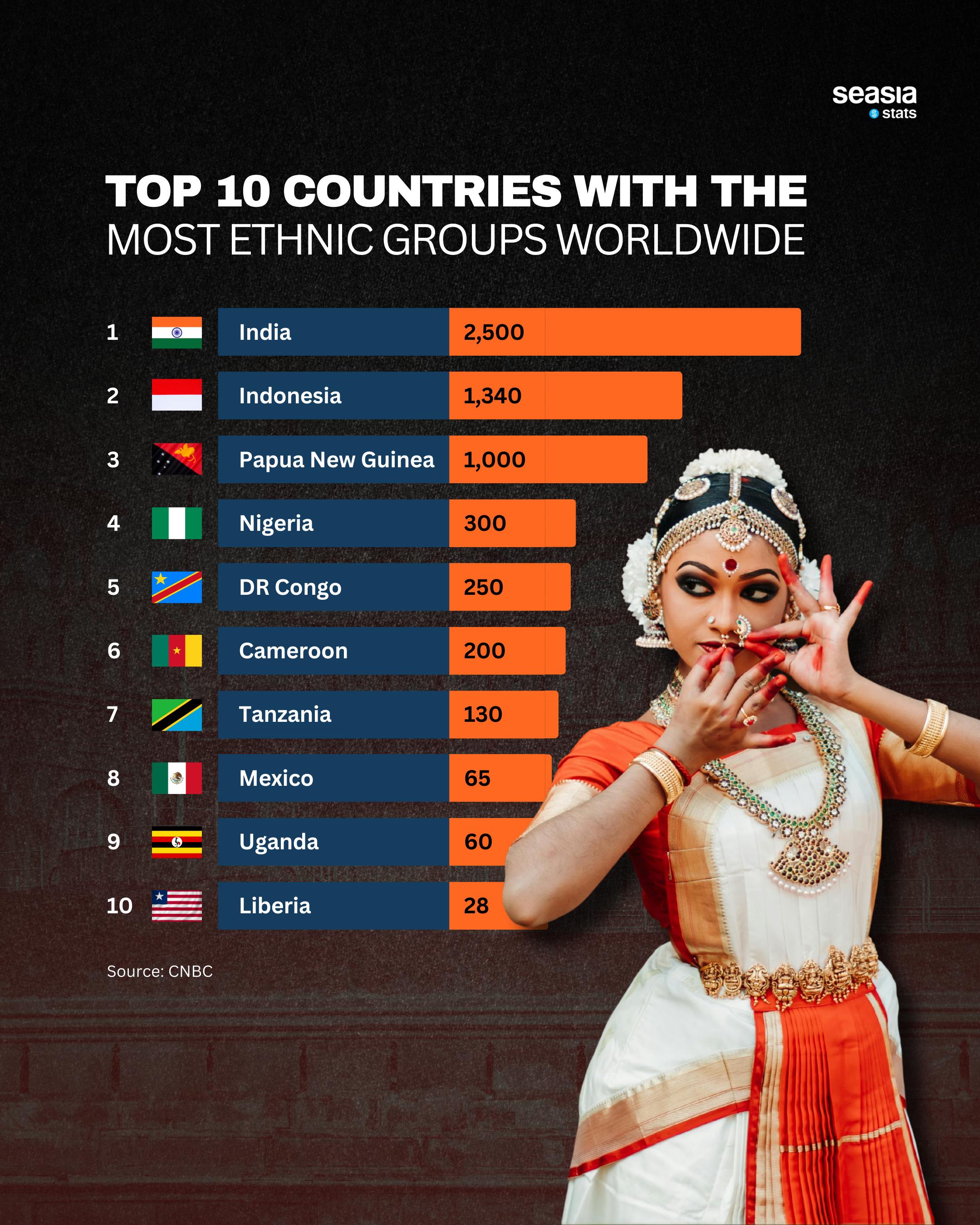Diversity is one of humanity’s greatest strengths—and nowhere is that more evident than in the world’s most ethnically diverse countries. A recent ranking from CNBC, visualized by Seasia Stats, places India at the top of the global list, with an astounding 2,500 distinct ethnic groups living across the subcontinent. From the Himalayas to the southern coast, India’s diversity is woven through language, religion, food, clothing, and traditions that span millennia.
This diversity isn’t just a demographic fact—it’s a cultural mosaic that continues to evolve, influence, and inspire. The image of a traditional Indian dancer included in the infographic perfectly captures the spirit of this richness: expressive, colorful, and layered with centuries of meaning.
Indonesia and Papua New Guinea Also Shine
Southeast Asia isn’t far behind. Indonesia comes in second with 1,340 ethnic groups, reflecting its status as an archipelagic nation with hundreds of languages and local identities. From the Batak of Sumatra to the Asmat of Papua, Indonesia’s diversity mirrors its geography—sprawling, unique, and deeply rooted in local culture.
Papua New Guinea, ranked third with 1,000 ethnic groups, remains one of the most linguistically and culturally complex countries on Earth, despite its relatively small population. Many of these groups live in remote and mountainous areas, preserving their traditions and languages with minimal outside influence.
Africa’s and Latin America’s Rich Contributions
The list also highlights the deep diversity found across Africa, with Nigeria (300 groups), DR Congo (250), Cameroon (200), Tanzania (130), Uganda (60), and Liberia (28). These countries are homes to vibrant ethnic identities that influence everything from traditional governance systems to music and fashion. In many cases, their borders contain cultural histories that long predate colonial maps.
Meanwhile, Mexico, with 65 ethnic groups, shows the complexity within Latin American societies—where Indigenous, mestizo, and Afro-descendant communities live side by side, forming a layered national identity.
More Than Just Numbers
These rankings remind us that ethnicity isn’t about counting groups on a list—it’s about understanding how cultural identities shape societies, contribute to political dynamics, and enrich the human experience. Ethnic diversity can be both a source of national pride and a challenge for unity, depending on how inclusive and respectful a country’s systems are.
In a world that often grapples with division, celebrating and protecting diversity remains more vital than ever. From India’s vast population to Liberia’s smaller count, each group represents stories, languages, and worldviews that deserve recognition.



















